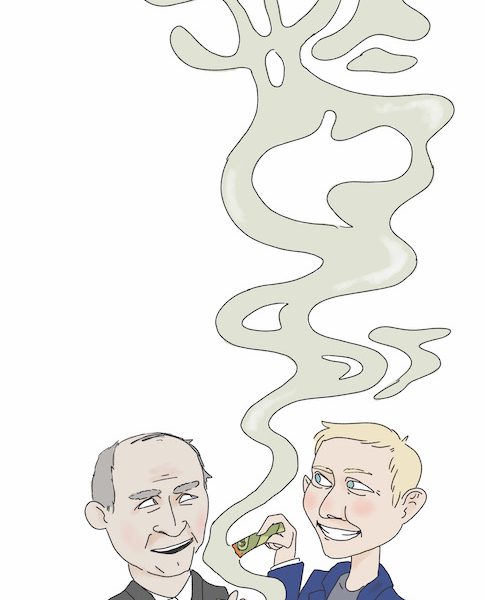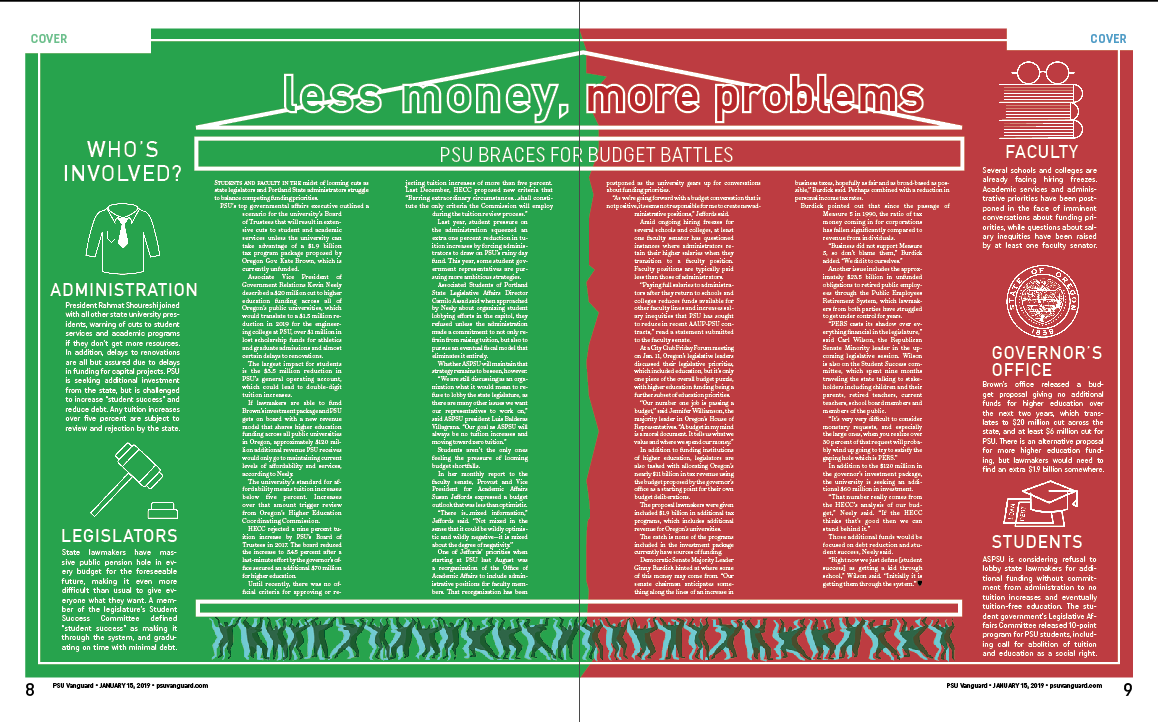Former PSU professor, Holocaust survivor and lifelong activist Laureen Nussbaum spoke about active bystanding, addressing the validity of unconventional forms of contemporary and historical resistance.
During an Oct. 14 speech in Smith Memorial Student Union, Nussbaum, who was born in Frankfurt and migrated to Amsterdam after the rise of Adolf Hitler in the 1930s, said the absolute minimum one could do was make those in power uncomfortable.
“I found that very often, when people talk about the war years we have this very simple division of perpetrators, victims and bystanders,” Nussbaum said. “It isn’t that simple. The bystanders can be compliant, or they can actively be on the lookout for clandestine action.”
Nussbaum pointed to her own history as a Jew under German occupation of the Netherlands as an example of resistance in an unlikely form.
“There was resistance, and it was resistance that was much more sustaining than destroying,” Nussbaum said about the Nazi-occupied Netherlands. “The Dutch were excellent at forging papers…finding shelter to hide people, and [had] a very good underground press.”
An example of an unconventional form of bystander resistance that Nussbaum noted was Hans Calmeyer. Calmeyer, a German official based in the Hague who oversaw petitions regarding the legal status and identification of Jews, changed the status of over 3,700 registered Jews to save them from deportation—including the status of Nussbaum, her sister and her mother.
Nussbaum said Calmeyer was a staunch anti-Nazi from the beginning and asked for an administrative position to undermine Nazi efforts.
According to Nussbaum, Calmeyer transferred petitions to his superior, he marked children of mixed marriages as half-Jewish, which allowed them to take off the yellow star and prevented their deportation from Amsterdam.
“That was step number one that Calmeyer had [taken]…using the law against the people in power,” Nussbaum said.
Nussbaum also detailed the risks Calmeyer was taking by changing the status of Jews and putting himself in a vulnerable position.
“The Nazis looked over his shoulder all the time. They felt he was fielding way too many opinions and positions…because it was very much suspect how many cases he decided in favor.”
Nussbaum’s advice for resisting in the modern world addressed alienation and social groups.
“I think there is a very strong propensity of people to think in terms of us and them…I think it’s in all of us,” Nussbaum said. “I think whenever we think in terms of us and them…our religion, or our nationality or our school…we have to fight it.”
On her efforts, particularly surrounding nuclear disarmament after she moved to California in 1957, Steven Fuller of the Germanic Languages department spoke highly on her accomplishments.
“Every single political event I ever went to, every progressive left-wing event that I went to, the Nussbaums would beat me there,” Fuller said, referring to Nussbaum and her late husband. “She was present, ever present.”
Nussbaum, now 92 years old, has been active in lobbying for various causes after retiring from PSU. Her recent efforts include trying to get an uncensored version of Anne Frank’s diary released to the public.






